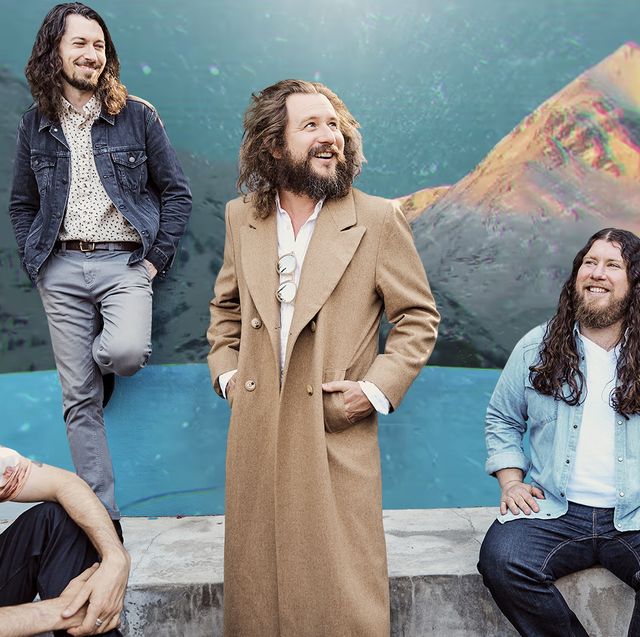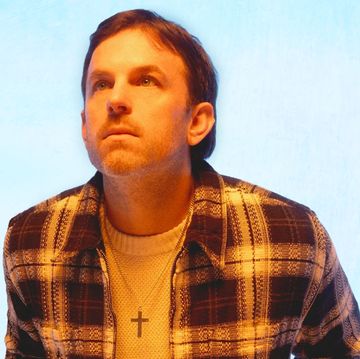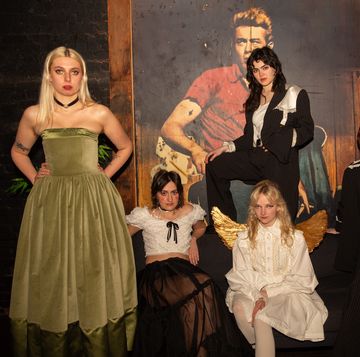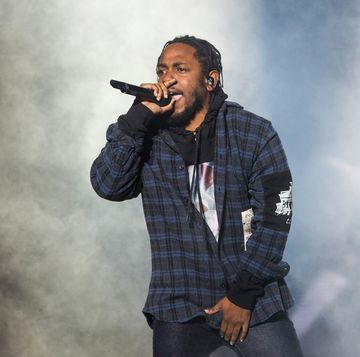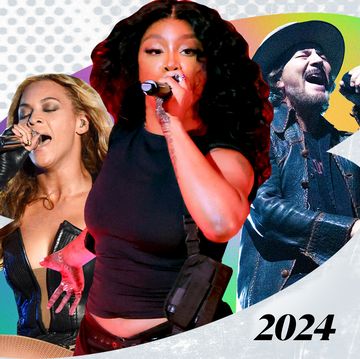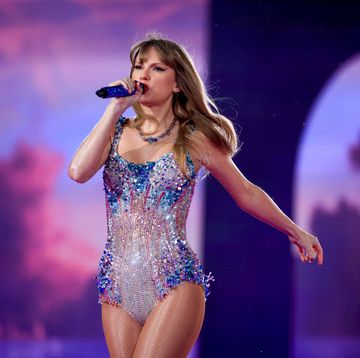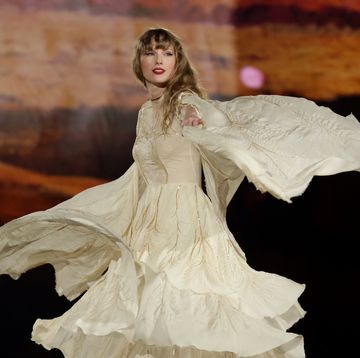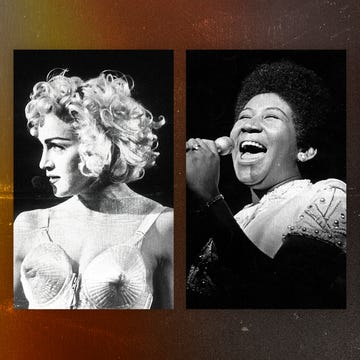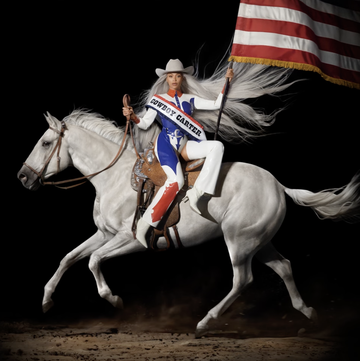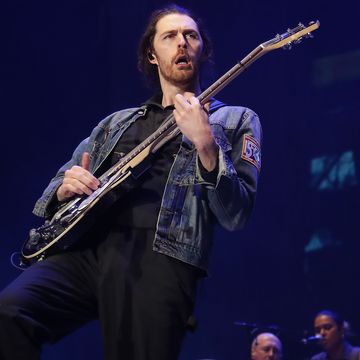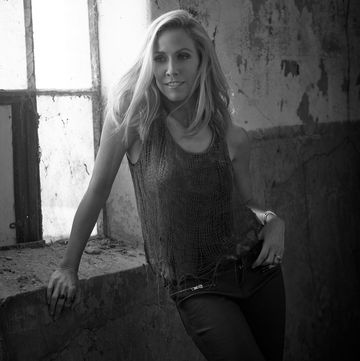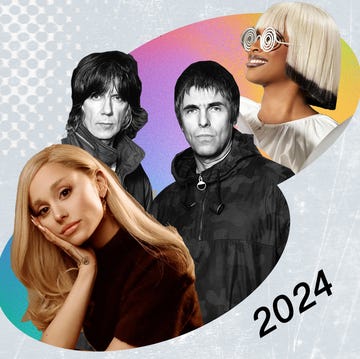Two decades, nine studio albums, and a number of shows we simply can't count high enough to tally, My Morning Jacket have precious little left to prove to the world of rock n' roll. Festival kings and, more than just occasionally, jam-scene heroes, the Louisville headbangers are one of the great live acts of their generation.
But in recent years, another MMJ album began to feel like less of a maybe and more of a maybe not. Years of heavy touring had taken their toll, physically as well as emotionally, James recalled in a wide-ranging conversation, condensed and edited below. "It was never the band or the people," he explains. "It's been me pushing myself too hard and saying yes to too many things. Being eaten alive by the road and being eaten alive by not taking care of myself."
It's a cycle that nearly killed him. But a several-years-long pause from recording and live shows has proved regenerative. Necessary. (Or, as James says, "The funny thing about time is that erases anything.") And today, the group releases its killer ninth album, My Morning Jacket, an 11 song set that channels an energy as loose and loud as their bombastic live act.
ESQ: Tell me about being back on the road.
JJ: I keep thinking about this so much, the both/and concept. This concept has helped me so much. Because, when we were in the middle of the pandemic and things were so dark, we were like, “Once we go back out, it’s going to be so great. Everybody’s going to be partying and hugging and kissing in the streets.” And obviously, it’s not like that. It’s both majestic and beautiful and the shows are so unbelievable, and it’s terrifying. It’s more stressful than it ever was before. Now, with Covid, if someone in your touring party gets it, you’re fucked. Nobody insures tours right now. So if a tour goes down because of Covid, whoever that happens to is getting hit super hard, financially.
That seems like a lot of risk to take on.
JJ: It’s really, really unfair. You know how insurance is. It’s one of the most evil industries on the planet. They’re just out to make money however they can and they know they would lose a lot of money, probably, if they insured tours for Covid. Everybody within our infrastructure is being super Covid-conscious. Masks everywhere. We even wear masks when we’re riding on the bus, except when we eat. We’re all going to need to walk this strange line for a while, because if we don’t, we get shut down again. It’s going to be a both/and existence for a while.
The last 18 months have been transformative for all of us. How have you changed?
JJ: I just don’t have time for any more bullshit. I think that's what this experience has taught me the most: Really listen to yourself. And just do those things that matter most to you, because we all get lost in chasing what we think we're supposed to chase. Just fuckin’ enjoy the people that you love and do the things you really love.
What’s one of those things, for you, that you can just always find joy in?
JJ: I really love walking. I feel like it literally recycles my blood. It’s like a blood transfusion. It really works a lot through my soul; it processes everything. That’s one thing I really love about touring. There’s no place that I haven’t found just unbelievable nature or unbelievable people doing beautiful shops or unbelievable architecture.
We’ve talked in the past about how being a touring musician has nearly cost you your life, more than once. Now that you’re back in it, what are you doing differently to stay healthy?
JJ: I’ve been trying to work on myself and spend time in therapy and realize, like, these reasons why we push ourselves too hard are that we don’t love ourselves enough, or we don’t think we’re good enough. I’ve been trying to find more love for myself, and I’m trying to do what is healthy for me versus what I think is going to bring me this imaginary love that is trying to fill this hole in my heart.
Touring is still a constant battle. One night on tour, you’ll have the most transcendental, unbelievable experience. The next night, everything’s broken. Everything’s fucked. Everything sounds like shit. You’re like, why am I doing this? But you have to try and find the joy, still, because you’re there for the people, and the people are smiling. It’s a challenge from the universe.
What kind of therapy have you found works best for you?
JJ: I am a you-name-it-I’ll-do-it type of therapeutic person. I’ve done lots of talk therapy and I’ve been doing EMDR recently, which has been really, really, really helpful. I’ve done silent retreats. I’ve done ayahuasca. I’ve done all the drugs—I’ve done all the sitting. And if there is anything I haven’t done, I’ll do it. [Laughs] That’s how I feel about trying to unlock the puzzle of life.
I haven’t ever done EMDR personally, but you hear so much about it being effective for processing trauma.
JJ: It’s removed a lot of darkness for me. And a lot of times, I think people know this from even trying to find any therapist, but it’s really about finding a good therapist that works well with you. And I got fortunate to find this therapist. It’s a combination of talk therapy and the EMDR processing. It’s really helped me move a lot of my traumas out of my operating system and into my memory, where they belong.
As a culture, we have tortured our artists, I think, into thinking that they need to be tortured in order to be artists. We tell them that their darkness is where their genius comes from. Did you feel, at any point, a pressure to keep that darkness?
JJ: I think that’s a lot of bullshit that we were fed, especially our generation with Kurt Cobain. Obviously, it’s true that tortured artists have made fantastic art, whether its Brian Wilson or Marvin Gaye or Kurt Cobain, whoever. But I saw that was bullshit when I started getting into Stevie Wonder, Curtis Mayfield—people who could be positive with their darkness. Everybody’s got some darkness, and musicians and artists have an extra helping, but you can look at it as your shadow side that needs to be embraced, and turn it into a way to talk about the trouble in the world.
This mental health thing is tough for everybody. But if we start talking about the normalcy of the darkness, we can start removing all this power from it. I feel like it’s a sacred duty of people like us to call bullshit on that myth.
Where do you feel like your darkness came or comes from? Is it your environment? Is it specific memories? Is it just in your DNA?
JJ: It’s everything. I’ve always felt like I didn’t fit in. I always felt sad. I remember being a three-year-old hearing Kermit the Frog singing “Rainbow Connection” and feeling the inherent sadness of the song—and feeling like I never belonged except when I heard a sound like that. I was like, "Whoa, that's like a doorway for me to stay here, because that sound makes sense to me."
You’re from Louisville, Kentucky, a place in the world not unlike where I was born and raised in St. Louis, Missouri, in terms of its attachment to the church. Where do you stand with religion now?
JJ: I call myself a recovering Catholic. And I obviously think there are beautiful things about the Catholic faith. I like to say when I talk about faith that I’m not judging anybody else’s faith. But for me it was horrific. The guilt and the shame. And I saw how it's wrecked so many people's lives. It's weird. And it's weird that you're from St. Louis because I have a great grandfather from St. Louis who I had never met that I've always felt was my guardian angel.
He killed himself long before I was born. And there was always this whole guilt and shame around him. Nobody in the family would talk about him. He was kind of exiled, and I will never know the story of why he did it or anything. I've tried to do a lot of energetic work of finding him, like going out into space and I've found him and welcomed him back into the family and told him that I love him and that there's nothing to be ashamed of, trying to do that kind of ancestral healing.
But the thing that people don't realize is that big religion is also big business. Like a lot of these rules they have, it's because they want your fuckin’ money. They don't care about your soul. People need to wake up to that. And I'm not saying that makes the beautiful things about each religion invalid, but when you take it so seriously and don't realize that it's also a corporation, that, to me, is really distressing.
Do you believe in god now?
Yeah. And for me, God is in nature. God is in music. God is in the love that we share. And I’ve seen God in certain churches, but the church I went to, I didn’t feel any god. I didn’t feel any presence of spirit.
When did playing music come into the equation?
JJ: In sixth or seventh grade, because I was terrible at all the sports. I was ridiculed socially and I had like two or three friends that were good pals and we would all practice [music] in my buddy’s parents’ garage. That was the only place where we felt like we fit in anywhere. That was the saving grace through high school. Really through my whole life, to this day.
There was a time when the idea of another My Morning Jacket seemed like something that would never happen. But here we are. A new collection—one that I think sounds the most like your live experience yet.
JJ: We didn’t know if we were going to keep it or not. We just went to the studio to play. And that opened everybody up to come in and be vulnerable. We just took a different approach, a looser approach, a more circular approach, as opposed to deliberately like trying to make this really great album or whatever. I'm sure that works for some people, I don't know, but for us, it makes more stress.
For me, returning to My Morning Jacket was really more about sorting through what it takes to be a touring band and, as the songwriter of My Morning Jacket, a show carries so much psychological weight. I’ve got to step into the role of the 20-year-old me and the 30-year-old me—all these different mes. I don’t really feel like that anymore. I’m 43. I don't feel like the 20-year-old me, but in order to sing this song, I have to go find this 20-year-old me. A lot of times, that really sucks. But doing it, and playing together was really sweet and beautiful.
Very few bands make it two decades—much less one decade. Do you think about legacy? How you want My Morning Jacket to be remembered?
JJ: Every record that comes out, I'm always like, "Maybe this will be the last, I don't know." Who knows? Maybe we'll make 40 more records. Maybe we won't ever make another record. I have no fucking idea.
I think every artist hopes their art will be timeless. But one day, all of this will be gone and nobody will remember anything. It's like, in whatever section of technology we live, however long it lasts, you only know what's timeless within a 100, 200 years span. But it's cool, thus far we've gotten to go for like 22 years. People are still showing up. To me, that's like a miracle.
